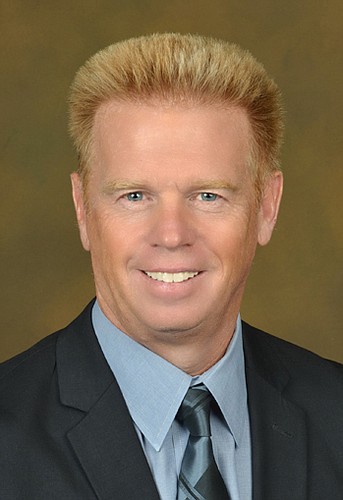
From the outside looking in, Wayne Weaver's sale of the Jacksonville Jaguars to Shad Khan seemed to come together very quickly in the fall of 2011.
However, from Bill Prescott's perspective from the inside, it was much more complicated.
"It was a process that started much earlier than that," Prescott said Thursday at a meeting of the Association for Corporate Growth North Florida Chapter at The River Club.
"Really it was about 2008 when we started looking to embark on selling the team," he said.
Prescott resigned his position as chief financial officer of the Jaguars in April after 17 years with the NFL franchise. Last month, he joined Jacksonville investment banking and advisory firm Heritage Capital Group as a principal.
As the Jaguars' top financial official, Prescott was involved in every step of the sale process and he said there are lessons from the sale that can be applied to any business.
"In a lot of ways, the Jaguars were no different than any family owned business," he said.
"It's a process that you manage as you go along."
For the Jaguars and majority owner Weaver, the process began in the mid-2000s when Weaver determined that his children weren't interested in succeeding him as the head of the franchise. Prescott said he and Weaver had many discussions in the next few years before looking into the possibility of selling the team.
Prescott outlined a seven-step process the Jaguars followed that could be applied to any business, starting with determining the value of the business, coming up with a financial presentation for potential buyers and then determining an asking price.
After that, you start identifying potential buyers and then letting the buyers do their due diligence. When that's done, you negotiate the contract and then close the deal, he said.
Of course, Prescott acknowledged there are some major differences between selling the Jaguars and selling another business. One concern was keeping the process quiet, because of the possible negative reaction from fans if they knew the team was for sale.
"It was all about secrecy," he said. "We were very concerned if word got out."
Prescott said he first began meeting with Khan in September 2010. To avoid being spotted at downtown hotels, they held many of their meetings at the more out-of-the-way Hotel Indigo in the Tapestry Park neighborhood, he said.
The Jaguars were also concerned about the constant media speculation that the team would move to Los Angeles. That eliminated some potential buyers.
"We were very sensitive to any buyer who had ties to California," Prescott said.
He said it would be very difficult to move the Jaguars or any team, because the owner would need to pay a relocation fee to the NFL that could reach $1 billion and also spend perhaps $1 billion more to build a stadium.
Prescott said Khan is committed to Jacksonville.
"For what he was looking for in an NFL franchise, everything was right here," he said. "I don't see the Jaguars going any place."
Prescott said about a half-dozen potential buyers "kicked the tires" on the Jaguars, but Khan was one of the few who had the resources to buy the team. The NFL has to approve the sale of any team and one league rule is that a team cannot have more than $150 million in debt, he said.
Prescott would not confirm the sale price of the team but he used the oft-published estimate of $770 million to illustrate the issues involved in the deal. If the price was $770 million and the buyer could only borrow $150 million, then he or she would have to come up with $620 million in cash.
"Needless to say that shrunk the pool tremendously in terms of potential buyers," Prescott said.
After Weaver decided to sell the team in 2008, he began letting word out that he was going to sell at some point, but he never said when that would be.
"There was shock when Wayne announced he was going to sell the team in November 2011, but not surprise," Prescott said.
The Jaguars seemed to do a good job of keeping the negotiations with Khan a secret. Prescott said the team didn't even inform the mayor until the morning the sale was announced.
The entire process was managed so well that when the sale was completed on Jan. 4, 2012, it was really a non-event, Prescott said.
"The closing was probably the most anticlimactic part of the thing," he said.
The Jaguars' fortunes have changed since the team came into the NFL in 1995 as one of the highest-revenue franchises in the league, helped by the stadium's club seats, which were a unique feature back then.
The Jaguars were so financially successful that other teams decided to copy them by building new stadiums with club seats.
"We were a model for other NFL franchises," Prescott said.
Now the Jaguars are one of the bottom teams in terms of revenue, because it is generating less in local revenue than other franchises. Prescott said about 75 percent to 80 percent of the team's revenue is coming from national sources, such as the league's television contracts.
However, Prescott is optimistic about the team's financial future.
"I'm still very bullish about Jacksonville as a market," he said.
(904) 356-2466